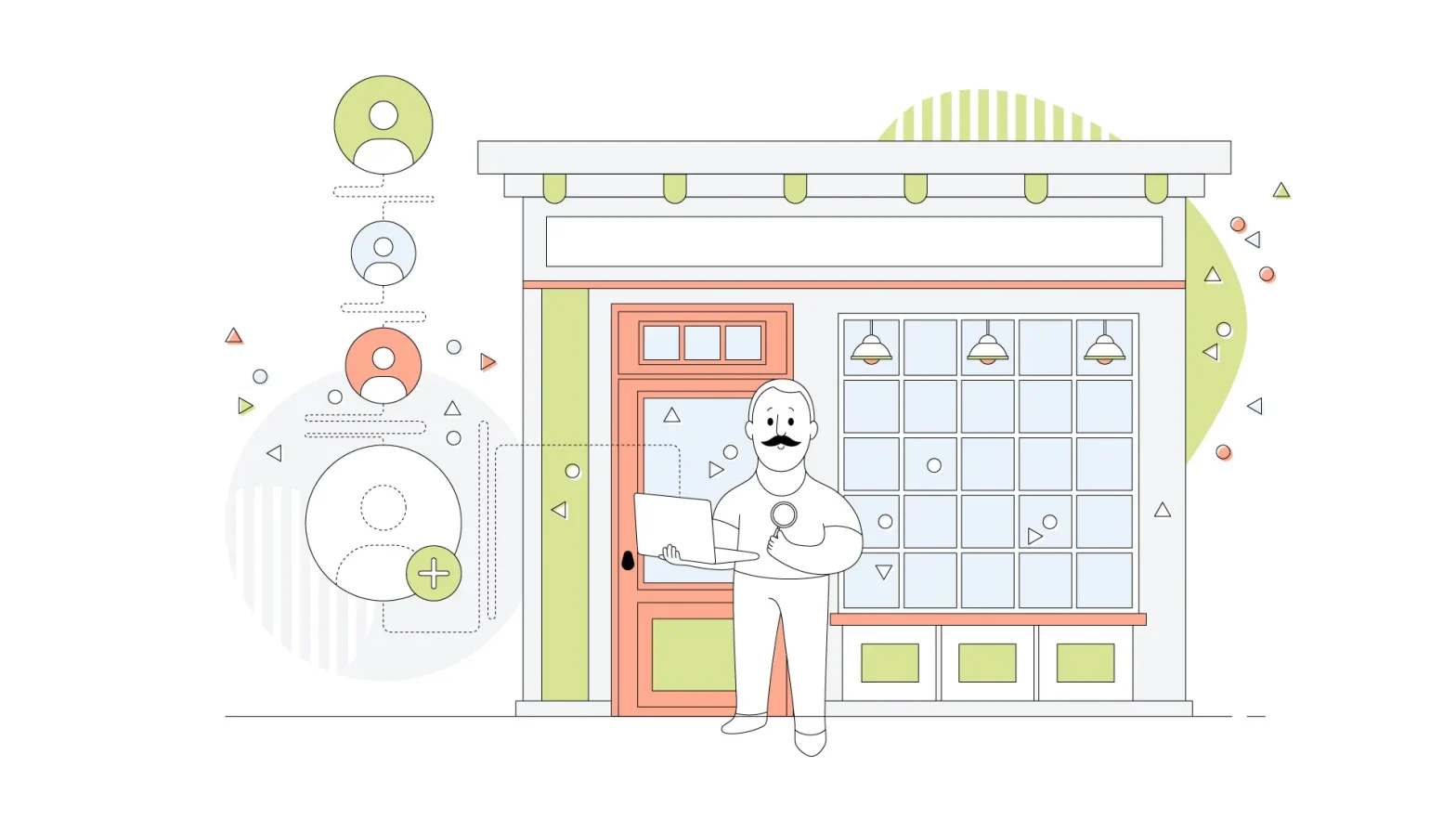Bringing your business online is one thing, but selling online with our own eCommerce store is another. Both options require a solid web hosting plan and a reliable web host, but to secure eCommerce success, you need to weigh your options carefully, even before beginning your journey.
This blog will cover all the essentials you need to consider when looking for an eCommerce platform, the best hosting provider, or anything else that will give you the best experience possible with your online store.

Is There an eCommerce-Specific Web Hosting? The Basics of eCommerce Hosting
eCommerce hosting is a specialized web hosting service designed for online retail businesses. A host built with online stores in mind plays a critical role in ensuring all sites are accessible and functional for customers.
While some web hosts have specific naming conventions, others concentrate on delivering the best hosting experience through options like VPS Hosting or Managed WordPress installations. And this can be guaranteed not only for eCommerce websites but for any high availability site.
These options are particularly well-suited for agencies, freelancers, and small businesses managing multiple websites.
But the question still remains: Are there any eCommerce-specific web hosting plans available in the market?
Most hosting plans that cater to eCommerce sites provide infrastructure to support an online store right out of the bat. This includes all the necessities for a well-designed store:
- Fast loading times
- Secure payment processing
- Free SSL certificates
- Content delivery network (CDN)
- Excellent uptime of over 99%
- Helpful customer support with great availability
You can access most of these features on any plan, so why seek a tailored approach for your eCommerce business? It turns out you can start with more painless plans, especially at the beginning of your business venture.
A simple Web Hosting solution might be all you need initially, but a WordPress-specific hosting plan is an excellent starting point if you’re working with WordPress websites. In these plans, WordPress comes as a pre-installed CMS that most websites use nowadays.
However, that doesn’t mean many web hosts aren’t promoting their eCommerce-specific features to new entrepreneurs. Nor that their web hosting plans are incompatible with what we consider an online store. Most features desired by anyone trying to sell online ultimately depend on the amount of traffic they anticipate, allowing them to maximize uptime and ensure their site remains online for as long as possible.
Content delivery networks (CDNs) are a top priority because they ensure excellent website performance and speed. Shopping cart software and payment processing integrations are also welcomed and can be set up from within a WordPress installation.
Selecting the right eCommerce hosting provider is important to ensure optimal performance, security, and customer experience on your website. We’re sure there are many more, right? Right. Which brings us to the next section of our blog.

Key Features Most People Look For in eCommerce Website Hosting
For the most part, first-timers will want to have some of the basic eCommerce features readily available, such as ample storage, unlimited bandwidth, and plenty of email accounts for themselves and their colleagues.
This may not sound like a lot, but these features are pivotal for selling online.
1. Cost per Features
Evaluate pricing plans in detail, including any limitations, hidden fees, or potential increases upon renewal. When considering hosting providers, it’s crucial to evaluate their features and pricing to ensure you get the best value. The cheapest option isn’t always the best if it lacks the necessary features and reliability.
For just a few more dollars per month, you can receive ten times as many email accounts with your plan—at least when you’re with HostPapa.
2. Development Team Expertise
Consider the technical proficiency required to manage the hosting solution. Selecting the best hosting providers for eCommerce sites, which offer robust support mechanisms, can be very important if your team is less experienced. A managed hosting service with strong support might be preferable over a more hands-on option.
While daily maintenance checks aren’t particularly challenging, they do require time that could be better spent on growing a business.
3. Support & Technical Assistance
Reliable, round-the-clock customer support is critical when choosing an eCommerce-ready hosting company. Ensure the provider offers responsive and knowledgeable technical assistance to resolve any issues that could disrupt your operations quickly.
4. Page Load Speed
Fast page load times are vital for a smooth user experience and higher conversion rates. Selecting the right eCommerce hosting solution is necessary for optimal performance. Choose a host known for its performance optimization and scalability to handle traffic spikes efficiently.
Prefer ones that come with a money-back guarantee, much like HostPapa.
5. Security & Compliance
Prioritize eCommerce hosting solutions that provide comprehensive security features—such as advanced threat protection, SSL certificates, automated backups, and PCI compliance—to safeguard sensitive customer data and maintain trust in your customer base.
Common Options for Hosting an eCommerce Website
1. Web Hosting
Web hosting is an entry-level option in which multiple websites share server resources. It’s affordable, easy to set up, and comes with everything most small business owners need. Many web hosts offer a variation of this specific hosting option paired with WordPress, which is pre-installed for faster setup.
However, for online stores, selecting the right eCommerce web hosting is mandatory as it provides necessary features such as security, management tools, and improved customer experience.
- Good starting point: Because modern web servers are fast, standard web hosting offered by many hosts can be an excellent and easy way to get online. Plus, most come with a free domain name and a free SSL certificate.
- Cost-effective solution: Web hosting plans come at a fraction of the cost of many other solutions, including options like Shopify or Squarespace.
- Easy to use: Simple web hosting plans come in simple outfits. However, you must install a CMS or upload the website files yourself. HostPapa’s WordPress Hosting, though, gives you a headstart by setting you up with a WordPress installation fast and easy.
Best for: Small eCommerce stores just starting out with minimal traffic.
2. Managed Hosting
Managed Hosting is a hands-off solution in which the hosting provider handles server maintenance, updates, security, and optimizations on the user’s behalf. It’s particularly useful for platforms like WooCommerce running on a WordPress site and for any online business owner with little or no time to spare.
- Expert support: Hosting professionals handle technical tasks.
- Time-saving: Focus on running your business instead of managing servers.
- Enhanced security & performance: Optimized hosting environments for eCommerce.
Best for: Businesses that want a hassle-free hosting solution with professional support.
3. VPS Hosting (Virtual Private Server)
VPS hosting balances shared and dedicated hosting, providing greater control and improved performance. Selecting the right VPS hosting solution will have a direct impact on the performance and security of your online store.
Most hosting providers allow the management of multiple servers and the hosting of multiple or unlimited websites. In contrast, others offer the choice of self-managed or fully managed VPS services, depending on the time professionals have available.
- Dedicated resources: Unlike most web hosting plans, VPS gives you allocated CPU, RAM, and storage.
- Improved security: Isolated server environments enhance security.
- Scalability: Suitable for growing eCommerce businesses that need more power.
Best for: Medium-sized eCommerce sites looking for better performance and reliability or run custom software.
4. Cloud Hosting
Cloud hosting is a scalable eCommerce hosting solution that hosts your website on multiple servers rather than on a single physical machine. It shares many similarities with VPS hosting offered by some web hosts, but it provides even greater scalability by allowing you to add more resources as you grow.
- Scalability on demand: Ideal for businesses with fluctuating traffic.
- Pay-as-you-go pricing: You only pay for the resources you use.
- High uptime & redundancy: Ensures reliability even if one server fails.
Best for: Fast-growing eCommerce stores or those experiencing seasonal traffic spikes.
5. Dedicated Hosting
With dedicated hosting, you get an entire server exclusively for your website, offering maximum performance and control. Selecting the right eCommerce web hosts is paramount, as they provide various hosting solutions like shared hosting, virtual private servers, and dedicated servers to cater to different needs based on traffic and resource requirements. From a security perspective, it’s the safest option for most businesses.
Companies must possess the necessary IT skills and resources, even when utilizing dedicated servers, to maintain continuous updates, enhancements, and maintenance. Bare metal dedicated hardware offers significant advantages for organizations that rely on I/O-intensive applications, such as big data systems and databases.
- Unmatched performance: No resource sharing means faster load times.
- Enhanced security: Best for handling sensitive customer data.
- Full customization: Ideal for businesses with specific technical requirements.
Best for: Large-scale, high-traffic eCommerce sites that demand top-tier performance.

Why Choose HostPapa for Your eCommerce Website
Unrivalled Performance and Reliability
Our state-of-the-art servers are designed for improved speed and performance, ensuring that your eCommerce site loads quickly and operates smoothly. No matter if you start with a simple Web Hosting plan, WordPress Hosting, or a reliable and feature-rich Website Builder that offers online store capabilities.
Plus, with an industry-leading uptime guarantee of 99.9%, you can trust that your online store will be available to customers 24/7.
Canadian-Based Excellence
As a proudly Canadian company, HostPapa hosts thousands of websites on our reliable, locally managed platform. Our deep roots in Canada ensure that our services meet high standards of quality and customer care, ensuring that they also cover the needs of our worldwide audience.
With data centres located across the globe, including Europe, the US, and Canada, HostPapa’s performance and reliability are impressive.
Award-Winning 24/7 Customer Service
At HostPapa, we understand that every minute counts in the world of eCommerce. That’s why our award-winning customer service team is available 24/7 to answer your burning questions and resolve any issues promptly—so you can focus on growing your business.
Because an always-on eCommerce store requires constant customer support to address your questions.
The HostPapa Guarantee
We stand by our service. If you’re unsatisfied within the first 30 days, you’ll get your money back. With our HostPapa Guarantee, you can get started with confidence, knowing we’ve got you covered.
Commitment to Security
Protect your customers and your reputation with our secure eCommerce-ready hosting solutions. Enjoy peace of mind with features like a Free SSL Certificate that ensures safe browsing and secure online transactions.

Web Hosting Considerations for eCommerce
Performance Optimization for eCommerce
While choosing the right eCommerce hosting solutions is crucial, optimizing your eCommerce website’s performance goes beyond just selecting a fast server. Here are some key areas to focus on:
- Image optimization: Large image files can significantly slow down your website. Use image optimization tools or plugins to compress images without compromising quality.
- Caching techniques: Caching stores copies of your website’s pages so they load faster for returning visitors. Leverage browser caching and consider using a caching plugin.
- CDN configuration: If your hosting plan includes a CDN (Content Delivery Network), ensure it’s properly configured to distribute your website’s content globally and reduce latency.
- Mobile optimization: With the rise of mobile commerce, ensure your website is responsive and optimized for mobile devices. Choose a hosting provider that offers mobile-friendly features and technologies.
Security Best Practices (Beyond Hosting)
Most eCommerce hosting solutions will offer essential security features. But you need to take additional steps to protect an eCommerce website:
- Strong passwords and two-factor authentication: Use strong, unique passwords for all your accounts and enable two-factor authentication for added security. Consider masking your WordPress login page with a plugin to prevent brute-force attacks.
- Plugin/theme security: To patch security vulnerabilities, keep your WordPress plugins and themes updated to the latest versions.
- Regular backups and offsite storage: To protect against data loss, regularly back up your website’s files and database and store them in an offsite location.
- Payment gateway security: Choose a reputable payment gateway that complies with PCI DSS standards and offers fraud prevention tools.
By implementing these performance optimization and security best practices, you can create a fast, secure, and reliable eCommerce website that provides a positive customer experience.
Conclusion
Choosing the right web host is an important decision for any eCommerce business. By considering factors like security, performance, scalability, and compatibility with your chosen eCommerce platform, you can set your online store up for success.
Remember that your hosting needs may evolve as your business grows. Prioritize scalability and choose a provider that offers easy upgrades to accommodate increasing traffic and transactions.
Don’t hesitate to contact our experts at HostPapa for a personalized hosting recommendation. We can help you find the perfect plan to meet your specific needs and support your eCommerce growth goals.
Explore our eCommerce hosting plans today and take the first step towards building a thriving online store.

FREQUENTLY ASKED QUESTIONS
How much does it cost to host an eCommerce website?
HostPapa’s options for a full-fledged eCommerce website start at around $40 USD per month when you use our Website Builder. This intuitive, no-coding-required solution makes it easy to get started. If you’re comfortable with WordPress and want to dive into eCommerce gradually, our WordPress Hosting plans are priced as affordably and can start as low as the cost of one cup of coffee per month!
Is Shopify hosting good?
Shopify hosting is a solid alternative, but keep in mind that while it works well for many, there are several pricing concerns—especially if you plan to scale. Costs can rise quickly as your store grows, making it less economical for larger or rapidly expanding businesses.
What is the cost of a domain with HostPapa?
Domains with HostPapa can cost as little as $2.99 USD per year, depending on the domain’s popularity and demand.
Which platform is best for an eCommerce website?
The best platform really depends on your needs. HostPapa offers both our easy-to-use Website Builder and robust WordPress Hosting with WooCommerce integration. If you have limited time to manage your website, our Website Builder might be the ideal choice.
For those who are comfortable with WordPress and looking to save on long-term costs, WordPress Hosting is a great option. Your decision should consider your available time, investment size, and budget.
Feel free to reach out if you have any more questions—our award-winning team is here 24/7 to help!
How much does it cost to host an eCommerce website?
The costs of hosting an eCommerce website are similar to those of any other site, but they depend on the hosting plan you choose.
A basic web hosting plan can start as low as $3 but may reach up to $60 if you opt for a more isolated solution like VPS hosting. With VPS hosting, you enjoy numerous benefits, like the ability to run your own software on the server.
Ultimately, the cost of an eCommerce site depends on your requirements and how much you’re willing to spend to start your online journey.




